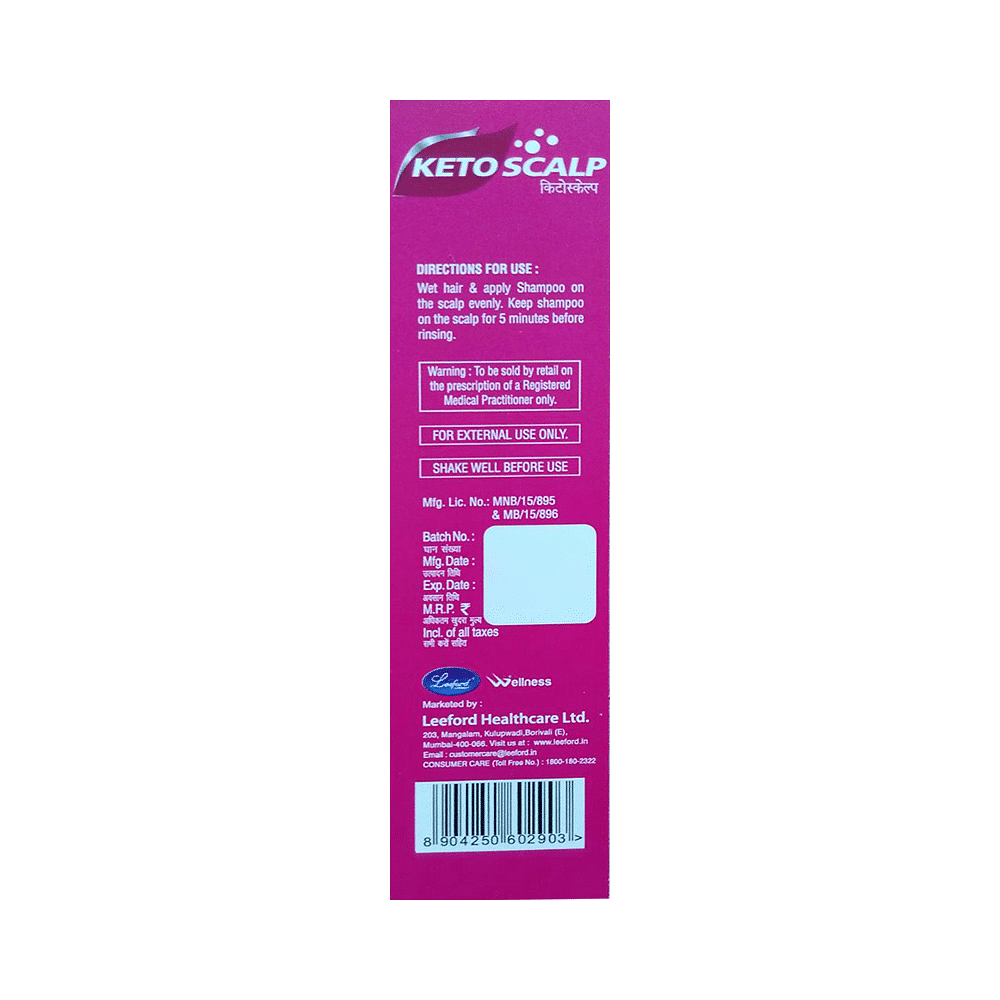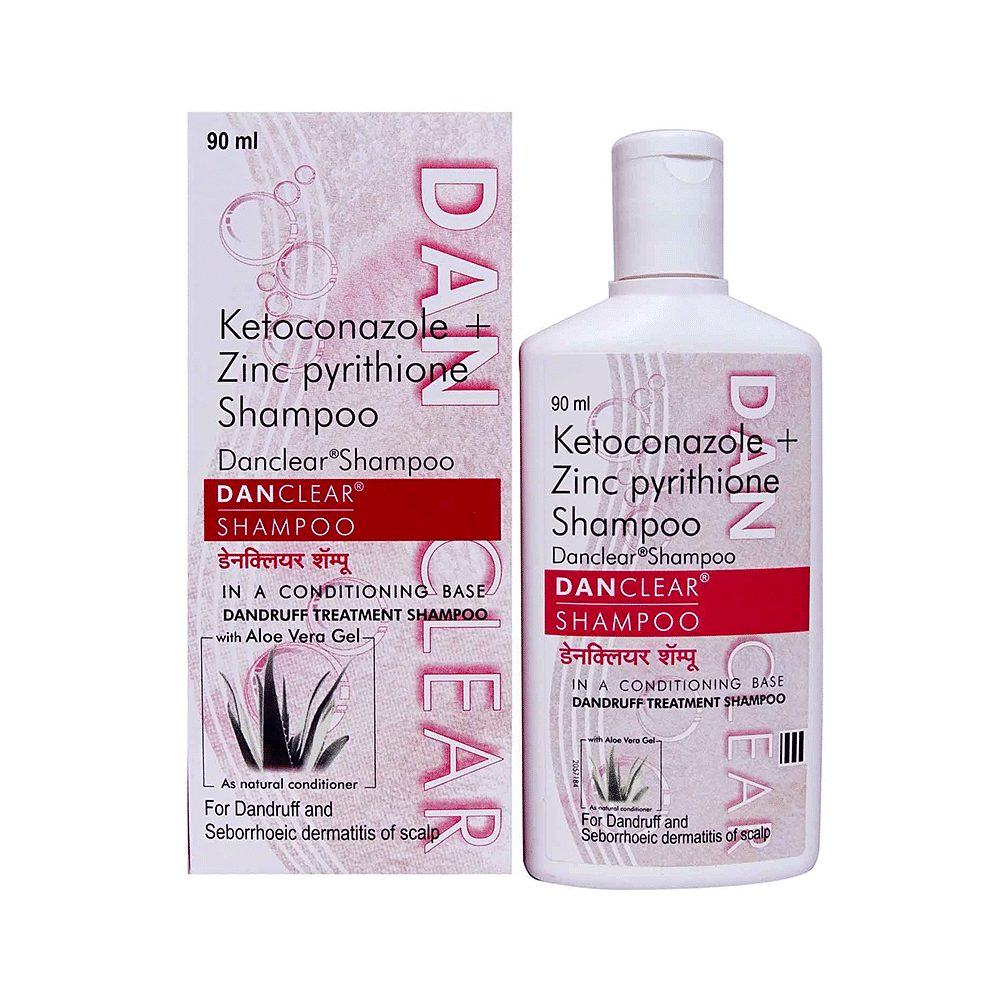
Ketoza Shampoo
Manufacturer
Blubell Pharma
Salt Composition
Ketoconazole (2% w/v) + Zinc pyrithione (1% w/v)
Key Information
Short Description
Ketoza Shampoo is a combination of two antifungal medicines that effectively treat dandruff, killing the fungi that cause the infection and relieving itching and irritation.
Dosage Form
Shampoo
Introduction
Ketoza Shampoo is only meant for external use and should be used as advised by your doctor. This medicine should be used regularly to get the most benefit from it. Do not use more than you need, as it will not clear your condition faster and may only increase the side effects. Make sure not to leave it on the scalp for more than 5 minutes. If it gets into your eyes, nose, or mouth, rinse it with water. Ketoza Shampoo is usually safe, however, it may cause burning, irritation, itching, and redness at the application site. These side effects are usually mild and self-limiting. Serious side effects are rare. It is not likely that other medicines you take by mouth or injection will affect the way Ketoza Shampoo works, but talk to your doctor before using it if you have recently used another medicine for dandruff. The medicine is not recommended for pregnant women. Pregnant and breastfeeding mothers should consult their doctors before using Ketoza Shampoo.
Directions for Use
Use it as advised by your doctor or check the label for directions before use.
Safety Information
Side Effects
No common side effects listed
Pregnancy Warning
The medicine is not recommended for pregnant women. Pregnant and breastfeeding mothers should consult their doctors before using Ketoza Shampoo.
Interacting Medicines
No interaction found/established
How it works
Ketoza Shampoo is a combination of two antifungal medicines: Ketoconazole and Zinc pyrithione. It works by destroying the cell membrane of fungi that cause dandruff.
Quick Tips
Leave the shampoo on for three to five minutes before rinsing. Take care to avoid getting Ketoza Shampoo in your eyes. If accidental exposure occurs, rinse immediately with plenty of water. Your usual shampoo can be used as necessary between treatments with Ketoza Shampoo. Do not use this medicine more often or for longer than advised by your doctor. Avoid getting it in the eyes, mouth, or nose. Rinse with cold water if you accidentally get it in these areas. Stop using Ketoza Shampoo and inform your doctor if you notice any irritation or any other skin infection. Inform your doctor if the treated skin area does not improve after 2-4 weeks of treatment.
Related Medicines

Ketoscalp Shampoo

Ketamide-AD Shampoo

Danclear Shampoo

Druffnil Shampoo

8X-KT Shampoo

Kerizole-ZP Shampoo

Ketogud Shampoo

KT-Soft Shampoo

Canzol Shampoo

Hairecap Shampoo
Frequently asked questions
Can I use Ketoza Shampoo regularly?
You can use Ketoza Shampoo as directed by your doctor. Apply to the scalp and leave for 1-2 minutes, then massage and rinse thoroughly.
Can Ketoza Shampoo cause hair loss?
Ketoza Shampoo is not associated with hair loss. Regular use may reduce dandruff and decrease the likelihood of future hair shedding.
What should I inform my doctor before using Ketoza Shampoo?
Tell your healthcare provider if you have a history of allergies or are allergic to any medications before use.
How long should I leave Ketoza Shampoo on my scalp?
Do not keep Ketoza Shampoo on your scalp for longer than the recommended time, as this may cause irritation or burning sensation.
Will I go bald if I have dandruff?
Dandruff itself does not lead to baldness. However, severe dandruff and excessive scratching can result in hair loss due to the trauma of scratching, but hair will eventually grow back. If you experience significant hair loss after using Ketoza Shampoo, consult your doctor.
My hair is dry and brittle, will Ketoza Shampoo damage my hair more?
Ketoza Shampoo focuses on controlling dandruff at the scalp level, not directly addressing hair health. You can use it as a scalp treatment for up to 10 minutes before rinsing and following with regular shampoo and conditioner.
Can stress cause dandruff?
Although not a direct cause of dandruff, stress may contribute to various scalp conditions that could exacerbate dandruff symptoms.


